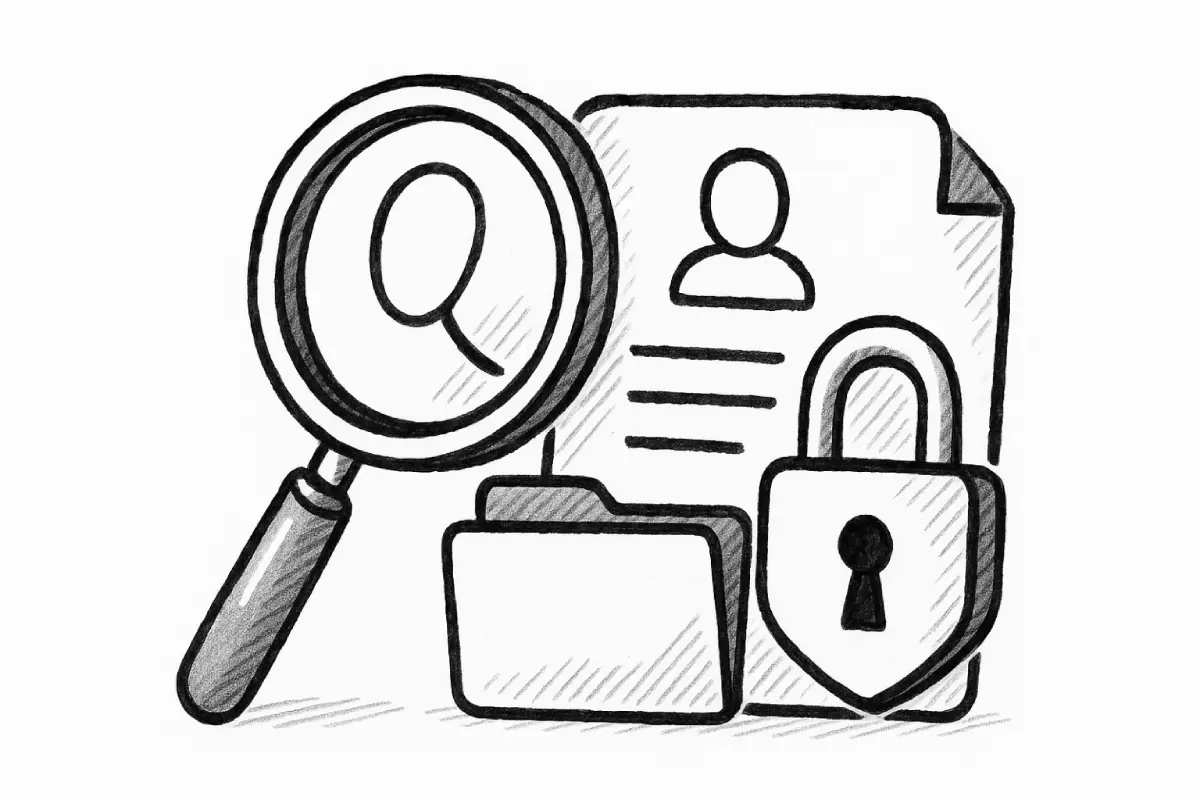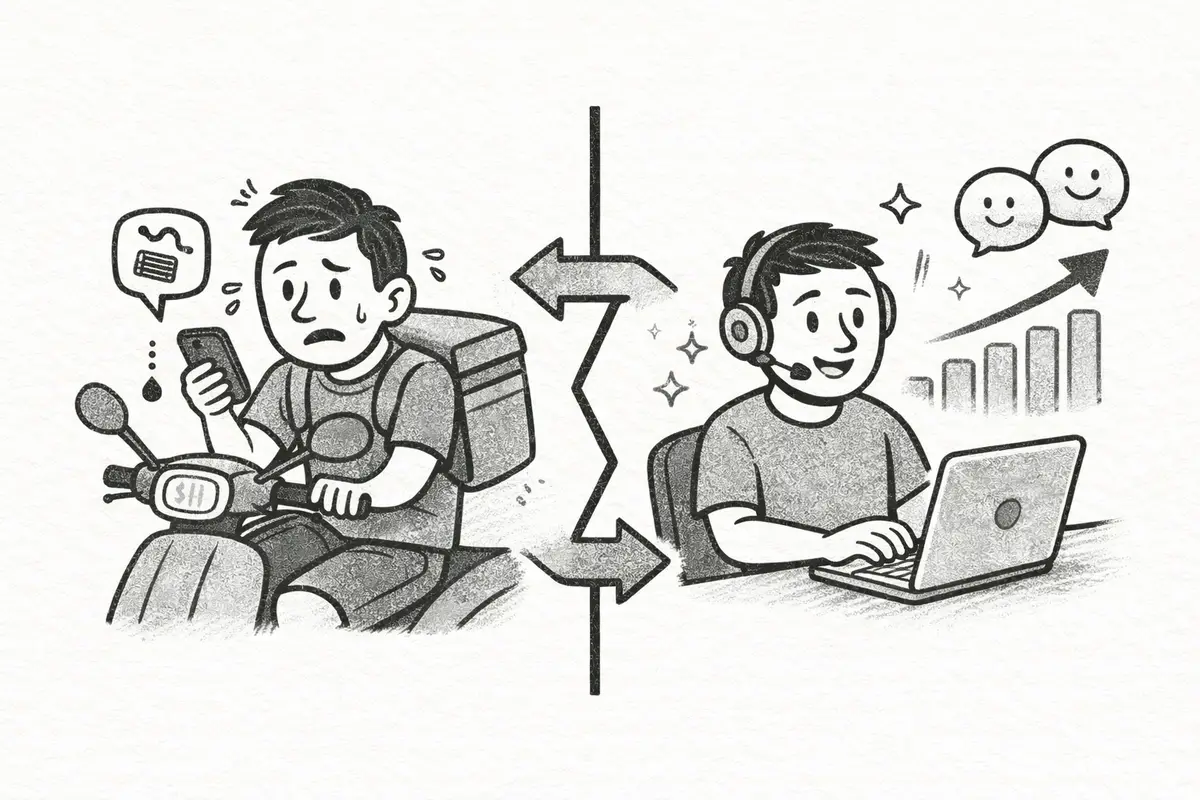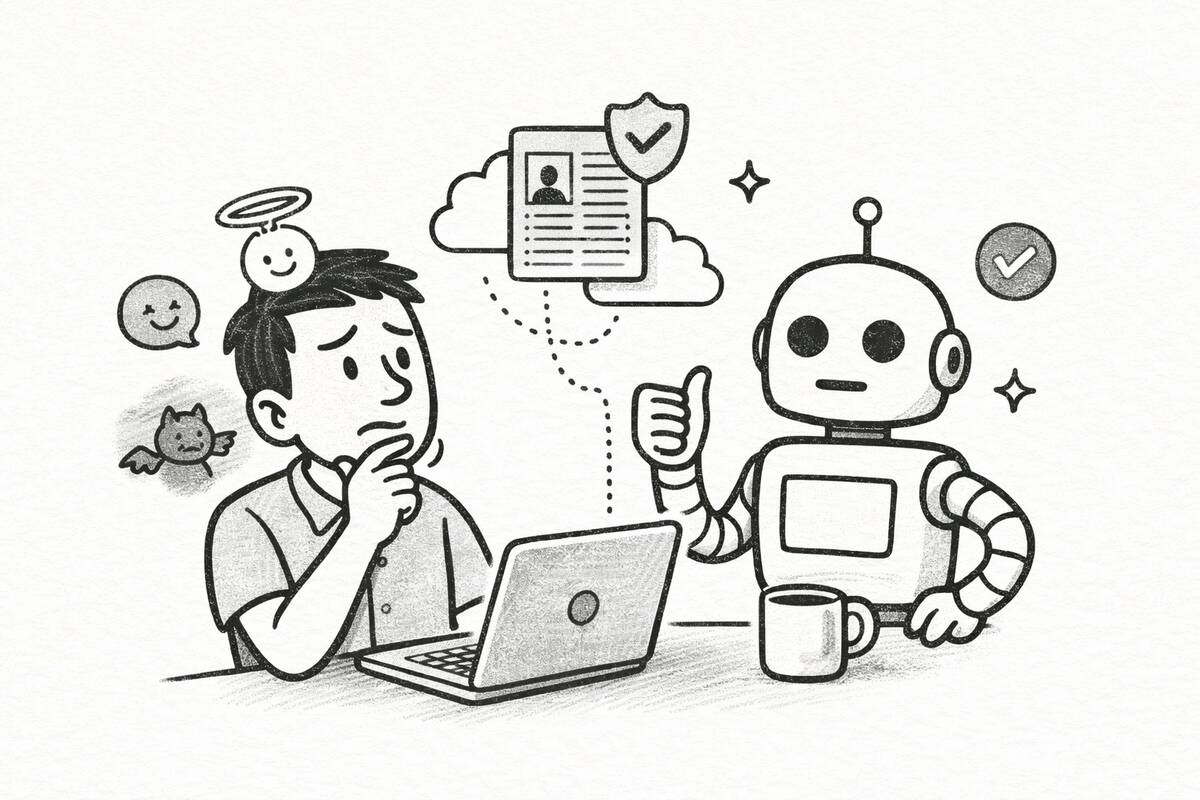Your resume is not a document. It’s a key. A key you’re happily handing over to dozens, maybe hundreds, of strangers online, hoping one of them will unlock a door to a better future. But here’s the thing about keys—they can be copied. And they can be used to open doors you never, ever wanted to walk through.
The whole process feels like you’re shouting your most sensitive information into a canyon and just hoping the right person hears it. It’s a necessary evil, I suppose. You can’t get a job in this day and age without a digital presence. But the sheer volume of data we’re expected to fork over for even a chance at an entry-level gig is, frankly, bananas. We’re talking full name, address, phone number, a detailed decade-by-decade history of your professional life, your skills, your education. And that’s just the appetizer. Some want your social security number for a “preliminary background check.” Riiight.
This isn’t just about some shadowy hacker in a hoodie, either. It’s about the slow, methodical creep of data aggregation. It’s about legitimate-looking companies that are really just data brokers in disguise, selling your ambition to the highest bidder.
The New Gold Rush is You
We’ve moved past the era of simple identity theft. That’s old hat. The game now is more subtle, more insidious. It’s about building a complete, 360-degree profile of you. Your resume provides the skeleton—your work history, your location, your skills. Your social media fills in the muscle and sinew—your interests, your connections, your political leanings, that unfortunate photo from your cousin’s wedding.
Think about the metadata. The invisible ink. The file properties on that Word doc you just uploaded might contain the name of the person who registered the software. Your computer’s name. The date it was created. Small things. Seemingly insignificant breadcrumbs that, when gathered together, lead right back to your front door. It’s a level of exposure we’ve all just sort of… accepted. And we really, really shouldn’t have.
“People think they’re applying for a job, but what they’re often doing is applying to be a product. Their data—their hopes, their qualifications—gets packaged and sold before they even get a rejection email. It’s the quietest, most profitable scam going.”
It’s a fundamental misunderstanding of the transaction. You think you’re the customer, seeking a service (a job). In reality, on a huge swath of the internet, you are the product being sold.
Recognizing the Wolves in Sheep’s Clothing
So, how do you navigate this digital minefield? You’ve got to get a bit cynical. A bit paranoid, even. You have to learn to spot the tells, the little signs that something is off. Because the scammers and the data leeches, they’re lazy. They count on you being desperate and moving too fast to notice.
The “Six-Figures From Your Couch” Mirage
This is the most common lure. A job description that promises an absurdly high salary for a position that seems to require very little specific skill or experience. “Marketing Assistant, $120,000/year, No Experience Necessary, Fully Remote.” If your gut screams “that can’t be real,” listen to it. It’s almost certainly not.
Real companies have budgets. They have salary bands. They don’t throw money at undefined roles. This kind of ad is designed to do one thing and one thing only: harvest resumes. They want your data, not your talent. They’ll take your application, maybe even send you a fake “first-round interview” questionnaire (more data for them!), and then ghost you. Meanwhile, your information has been added to a database that will be sold to marketers, other scammers, and who knows who else.
The Grammar Ghouls and Communication Catastrophes
I cannot stress this enough: big, legitimate companies have people who can write. They have HR departments and communications teams who—believe it or not—know the difference between “your” and “you’re.”
If you get an email from a “recruiter” that’s riddled with typos, bizarre phrasing, or grammatical errors, a huge red flag should be smacking you in the face.
- Weird Salutations: “Dear Applicant,” or just starting with your email address.
- Urgency Overload: “THIS OPPORTUNITY IS AVAILABLE FOR 24 HOURS ONLY!” They’re trying to short-circuit your critical thinking.
- Unprofessional Email Addresses: If the email is coming from a Gmail, Yahoo, or some other free account instead of a corporate domain (@companyname.com), be extremely wary. Yes, some small startups might use Gmail at first, but a recruiter from “Microsoft” is not going to be emailing you from
[email protected]. Come on.
It sounds basic, but you’d be amazed how many people, caught up in the excitement of a potential offer, overlook these glaring signs.
The Upfront Payment Ploy
This one is the most brazen and, sadly, one of the most effective. It can take a few forms:
- “We need you to pay for a background check.”
- “You need to purchase this specific software for your training.”
- “We’ll send you a check to buy office supplies, just deposit it and wire the extra back to our vendor.” (This is a classic fake check scam).
Let me be crystal clear. You should never, ever have to pay a company to get a job. Legitimate employers cover the costs of hiring, including background checks, equipment, and training. The second money enters the conversation—your money, flowing to them—it’s not a job offer. It’s a con. Full stop. The Federal Trade Commission (FTC) has extensive documentation on these schemes because they are devastatingly common.
Fortifying Your Defenses: A Job Hunter’s OPSEC
Okay, enough doom and gloom. You can’t just unplug and go live in a cabin (well, you can, but the job prospects are limited). You have to participate in this digital ecosystem. But you can do it smartly. You can practice what the military calls “Operations Security,” or OPSEC. It’s about identifying what the bad guys might want to know and then stopping them from learning it.
Compartmentalize Everything
This is the single most important thing you can do. Do not use your personal, primary email address for job hunting. Just don’t.
Go create a new, sterile email address. Something simple and professional. [email protected]. This email address is used for one thing: applying for jobs. It’s not connected to your social media, your Amazon account, your bank. It is a firebreak. If (or when) this email address starts getting flooded with spam and phishing attempts, you know exactly where the leak came from. It doesn’t contaminate your real digital life.
Do the same for your phone number. Get a free Google Voice number. It forwards to your real phone, but you don’t have to give your actual cell number to a hundred different websites and potential randos. Again, it’s about control. If the number gets compromised, you can just ditch it.
The Sanitized Resume
Think about what really needs to be on your resume. Does a potential employer need your full street address? No, they don’t. “City, State” is more than enough. Once you get to the formal offer stage, you’ll fill out HR paperwork with all that info. But for the initial application? It’s unnecessary exposure.
Scrub the metadata from your files before you upload them. In Microsoft Word or Google Docs, you can go into the file properties and remove any personal identifying information. It takes ten seconds.
And for the love of all that is holy, lock down your social media. Or at least, review it through the eyes of a skeptical hiring manager. Go through your privacy settings on Facebook, Instagram, Twitter (or X). Assume that if they have your name, they’re going to Google you. What do you want them to see? A recent report from the Pew Research Center highlights just how little the average person knows about the data trails they leave, which is exactly what these bad actors rely on.
“The best defense is a boring offense. Make your public-facing profile as professionally bland as possible. Your job application is not the place for your personality to shine; that’s what the interview is for. The application’s job is to not get you disqualified.”
Trust, But Verify. Then Verify Again.
Found a job on a big aggregator site like Indeed or LinkedIn? Great. That’s a starting point. But don’t just click the “Easy Apply” button. That’s a fast track to getting your data sprayed everywhere.
Instead, take a breath. Open a new tab. Search for the company that supposedly posted the job. Does their official website exist? Does it look professional? Can you find a “Careers” or “Jobs” section on their actual site? If you can, apply there. Apply directly. This cuts out the middleman and dramatically reduces the risk that you’re applying to a phantom job posting designed to scrape your info. If you can’t find the job on their official site? It probably doesn’t exist.
The Data Afterlife
Here’s the final, uncomfortable truth. Once your data is out there, it’s out there. For good. That resume you submitted to that sketchy-looking “recruiter” two years ago? It’s probably still sitting on a server somewhere. It’s been copied, sold, bundled, and resold. Data is the gift that keeps on giving for scammers. A 2023 data breach report from Verizon paints a pretty grim picture of how persistent and varied these threats have become, with personal data being a prime target.
This isn’t to say you should give up. Not at all. It’s to say that this requires constant vigilance. It’s digital hygiene. It’s like brushing your teeth. You don’t do it once and then you’re done for life. You have to do it every day to prevent the decay.
So, go on the hunt. Be aggressive. Pursue that dream job with everything you’ve got.
Just, you know, watch your back. Because you’re not the only one who’s hunting.
You might also like: What Hybrid Work Will Look Like in 2030









